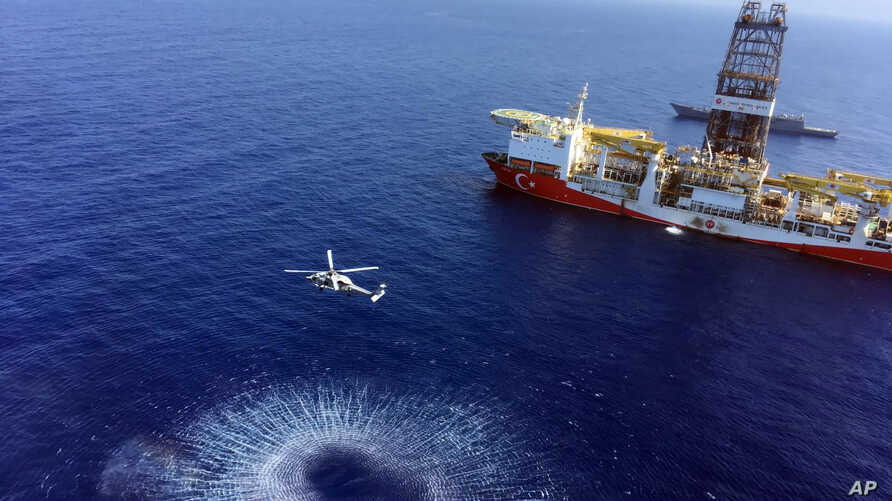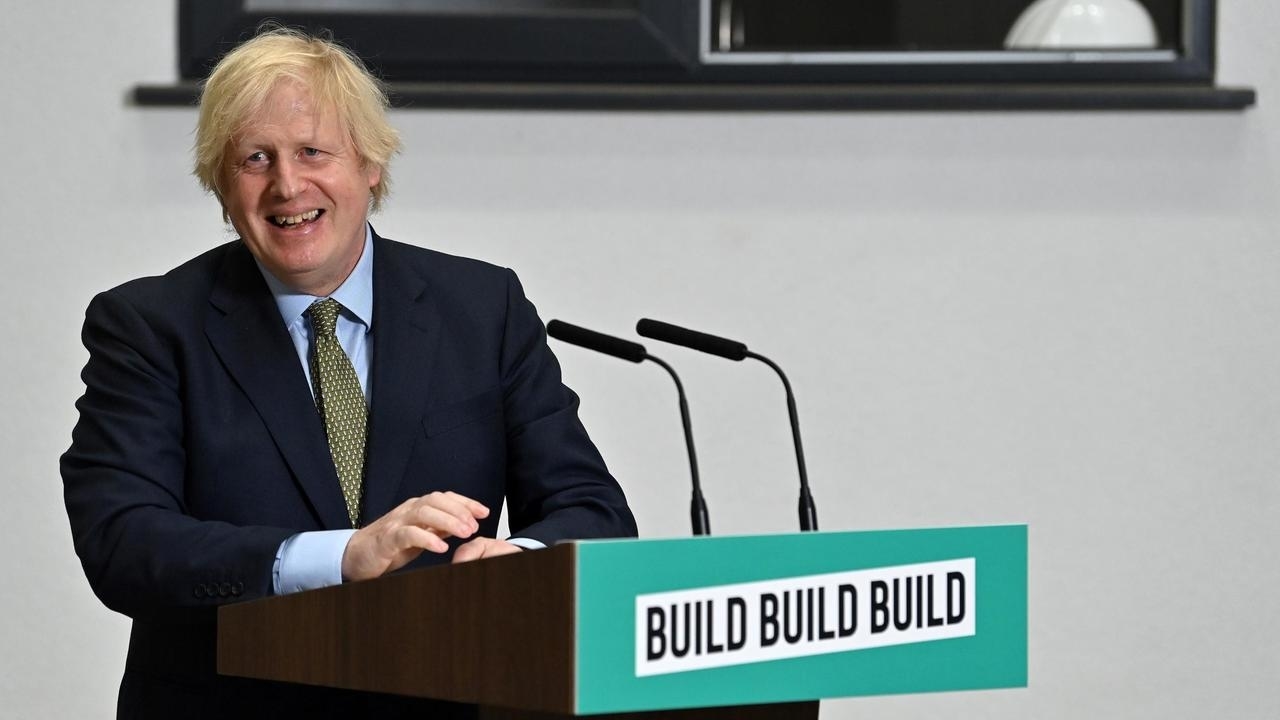Greece Protests Turkish Drilling Plans in Mediterranean

ATHENS – Greece has lodged strong protest with Turkey over Turkish plans to expand oil and gas exploration in in areas of the Mediterranean Sea that Greece considers its own. The Greek government has warned that any drilling in Greeces continental shelf areas will spark a heated response. Analysts warn that could spell a war between the two NATO allies.
FILE – GreeK Foreign Minister Nikos Dendias, during a news conference, Skopje, North Macedonia.
In a short but strongly worded statement, Greek Foreign Minister Nikos Dendias said Greece was ready to take on what he called, “the Turkish provocation,” warning Athens would respond if Ankara moved to start drilling in what it considers Greek waters.
Dendias later met with Turkey’s top envoy to Greece to express his dismay, but also to demand explanations on the controversial designs.
The diplomatic protests come amid revelations in Greek and Turkish media that Turkey’s state petroleum company has received license from the government of President Recep Tayyip Erdogan to proceed with oil and gas explorations in a total of 24 locations in the East Mediterranean.
No time frame was given for the drilling projects. But at least seven of them have been marked to take place just off the coast of some of Greece’s major islands, including Rhodes and Crete.
Despite the diplomatic protest, leading Greek government officials, like investment and development minister Adonis Georgiadis, appear to downplay Erdogan’s designs.
“We should remain calm,” he says. “Greece should not rise to the bait of everything Turkey throws its way. There is no doubt that any showdown will be bad for both sides.”
But the diplomatic tensions could not come at a worse time for Greece.
After two months of lockdown and a deluge of booking cancellations due to the coronavirus threat, Greece is scrambling to give its battered tourism on track and any semblance of tension between the two NATO neighbors is certain to spook tourists considering Greece and its Aegean isles as a summer vacation break.
 [contfnewc]
[contfnewc]
[contfnewc]
Even so, analysts like law professor at Angelos Syrigos at Panteion University in Athens say that Turkey’s drilling designs should come as no surprise.
Syrigos says there is no doubt that Turkey will proceed with its stated plan in the coming weeks. He says these media leaks about the 24 drilling locations in the Eastern Mediterranean amount to just a step in that direction and a war of nerves that Ankara is playing to test Greece’s reaction.
While both are NATO allies, Greece and Turkey have long challenged each others sea and air rights in the oil and mineral rich Aegean Sea.
 [contfnewc]
[contfnewc]
[contfnewc]
But relations in recent months have suffered after Turkey clinched a controversial deal with Libya.
The agreement effectively allows Turkey to explore and exploit the Mediterranean seabed for hundreds of miles, from its southwest coast to the northern tip of Libya.
The problem for Greece is that several Greek islands, including Crete, lie in between and experts like Syrigos sea an armed conflict erupting if the government in Athens sees its territorial sovereignty violated.
“A violent showdown is possible,” he said. Erdogan, he added, is determined to assert himself and Turkey’s interests on this important region.
In recent years, the Eastern Mediterranean has yielded significant gas discoveries.
Since then Egypt, Greece, Israel and Cyprus have been jockeying for greater control of the minerals-rich region, leaving Turkey alone to search on its own, even if it may now spell a showdown with Greece.




